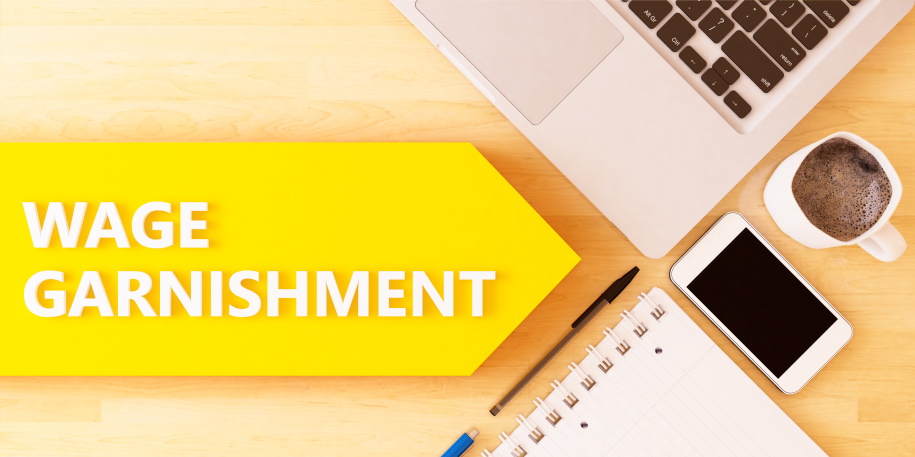Denver Bankruptcy Lawyer The Wink Law Firm Can Help You Decide If Filing for Bankruptcy Is the Smart Choice
If you don’t pay your bills, creditors may try to garnish your wages.
Wage garnishment is when a portion of your wages are withheld to pay off a debt to a creditor, the person or company to whom you owe money.
For example, let’s say you rack up a bunch of credit card debt and don’t pay it off. Perhaps soon the creditor will start calling incessantly or mailing you harassing letters, demanding payment. If you’re still not able to pay off the debt, the creditor may file a lawsuit against you. The reason a creditor will sue you is to obtain a judgment against you, which then can be used to issue a Writ of Garnishment to your employer. When this happens, your wages may then be garnished so a portion of your paycheck each pay period goes toward paying off that debt.
Chances are that if you’re struggling to pay off bills, the idea of having even less money – because your wages have been garnished – can be a terrifying prospect.
Luckily, filing for bankruptcy can be a way to make wage garnishment stop, while also helping you get back on your feet financially.
If you’re struggling with debt and worried about finances, especially the prospect of lawsuits and wage garnishment, it’s time to speak with a skilled bankruptcy attorney, such as The Wink Law Firm of Denver, Colorado. They’ll review your case and let you know your options for debt relief.
How Does Wage Garnishment Happen?
In most cases, the creditor has to file a lawsuit to be able to garnish your wages. They have to get a money judgment against you.
However, in the case of alimony, child support, back taxes, or federal student loans, creditors do not have to get a money judgment against you. They can potentially garnish your wages without a lawsuit.
You will be notified when a creditor has filed a lawsuit to get wage garnishment. You will also, of course, be notified of the outcome. (You won’t simply notice your paycheck is lower and think, “Wait a minute. . . . What happened?”)
If wage garnishment against you is granted, a Writ of Garnishment will be sent to your employer, directing them to take out a specific part of your paycheck to be sent to the creditor until the debt is paid off.
You do have rights, of course. Aside from filing bankruptcy, the best thing you can do is respond to the lawsuit if/when sued. If you think that you don’t actually owe the debt, you would have to assert this defense to the lawsuit timely, typically within 21 days of being served the summons and complaint. If you fail to respond to the lawsuit and judgment is issued, you may be able to dispute the creditor’s right to garnish your income. For example, social security and proceeds from social security cannot be garnished.
Depending on your circumstances, you may also be able to settle the debt and stop the garnishment. In general, it can be difficult to settle with a creditor once your wages are being garnished. While it is better to settle a debt before that point, settling with a garnishing creditor can be worth a try if bankruptcy is not a good option for you.
This is where a trusted bankruptcy lawyer can really help you understand your options and how to proceed to get the best possible outcome. You don’t want to make a foolish mistake on your own that makes your situation worse.
How Much Can Wage Garnishment Take?
Wage garnishment can’t take every single cent from your paycheck. The amount creditors can garnish varies by state. In Colorado, creditors are allowed to take 20% of your net wages. They can possibly take more if you earn more than 30 times the minimum wage. In the case of federal debts, such as taxes, the IRS can take 25% or more in some cases.
Thankfully, in Colorado, only one creditor is allowed to garnish your wages at a time. However, you can have lawsuits from multiple creditors trying to garnish your wages. But then they’ll basically have to “get in line” to collect your money, rather than them all being allowed to collect it at once.
Is Filing for Bankruptcy a Way to Avoid Wage Garnishment?
It’s likely that if your wages are being garnished, you’re already struggling with debt. Perhaps you unintentionally racked up costly medical bills, or you went through a long period of unemployment and fell behind on what you owe to various creditors.
That’s why it’s worthwhile to consider filing for bankruptcy.
Simply put, bankruptcy can put a stop to lawsuits and wage garnishment. It can help wipe out your overwhelming debt before creditors have time to sue you, or it can stop the lawsuit that’s currently happening.
Filing for bankruptcy won’t put a stop to some debts, like child support, alimony, and federal student loans, but it can help free up other money to pay off those debts, thanks to other debts being wiped out.
Bankruptcy is not easy, and it has some ramifications, but it can be a smart way to get back on track before things continue to snowball and get worse and worse. Speak with a bankruptcy attorney, such as The Wink Law Firm. They serve the greater Denver area and can help you understand the smartest way to get much-needed debt settlement.
Speak With a Denver Bankruptcy Attorney Today
Lawsuits are scary. And in the case of lawsuits related to your debt, they can lead to wage garnishment, making your money problems significantly worse. That’s why it’s crucial you speak with Denver bankruptcy attorneys The Wink Law Firm as soon as possible so you can understand your options and get the best possible outcome. Call (720) 523-0620 or contact them online today.

